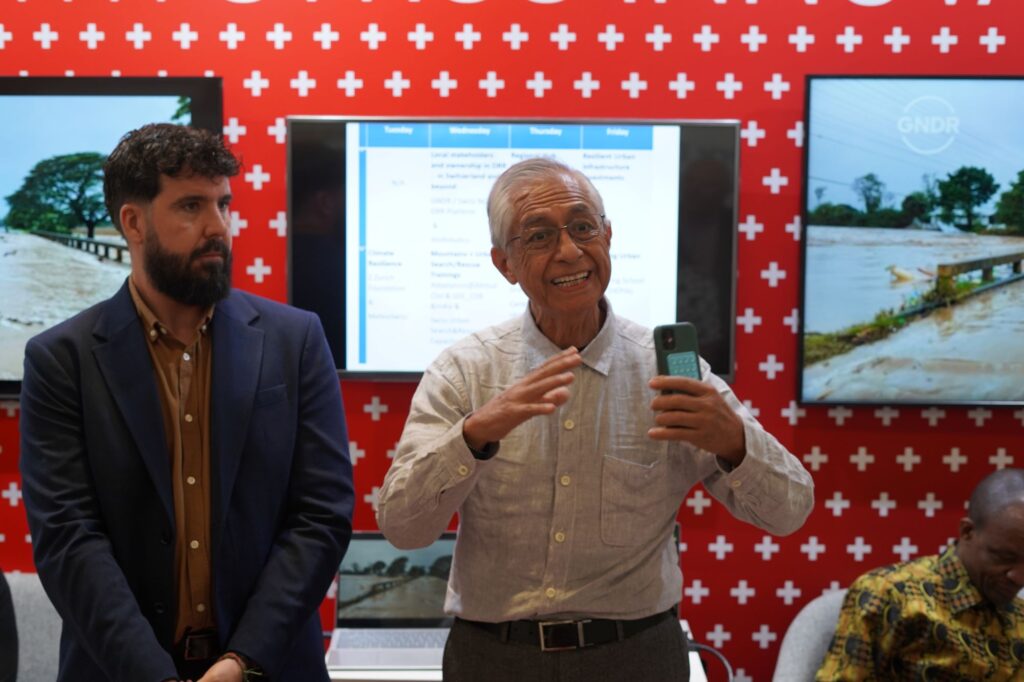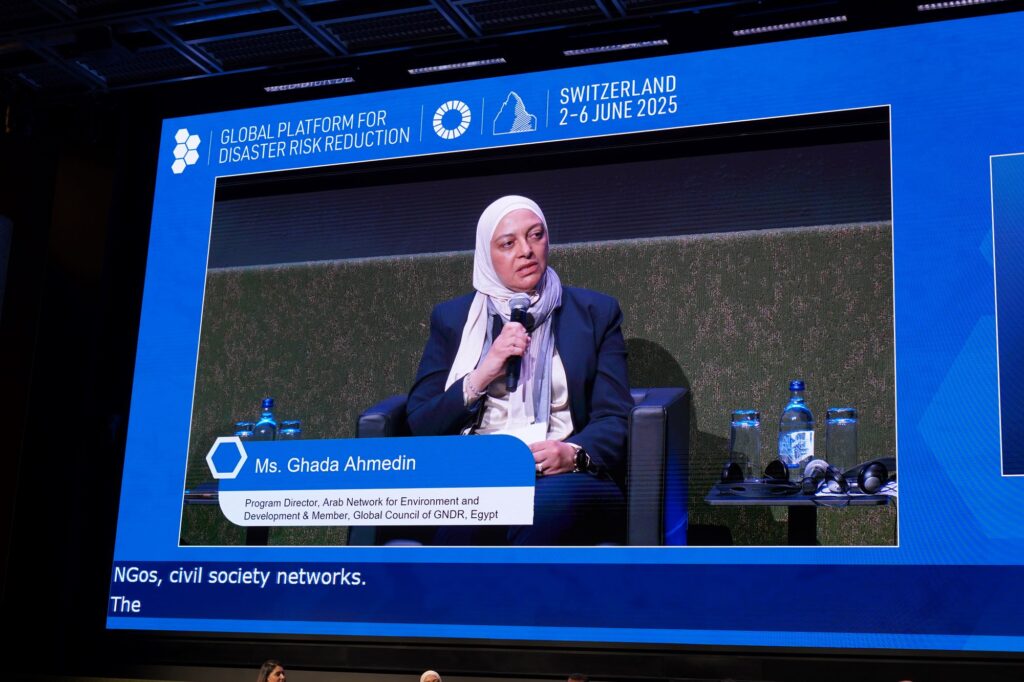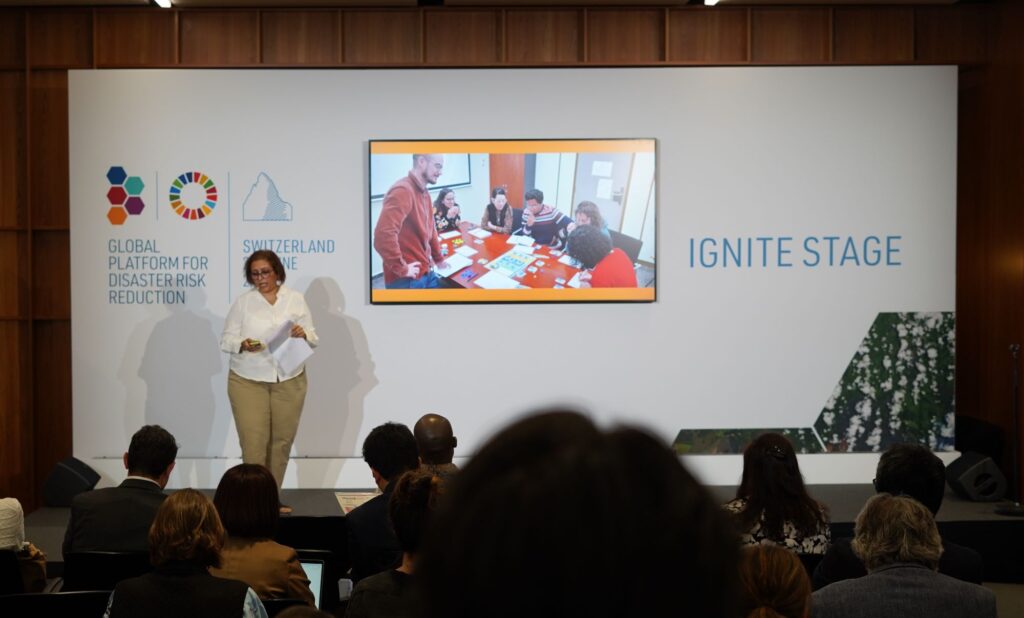The first official day of the Global Platform for Disaster Risk Reduction 2025saw GNDR and our members continue to share stories of best practice from civil society as we look to ensure that community voices are at the forefront of discussions. Read, share and join our GPDRR25 Call to Action.
The Swiss Booth Session
Six GNDR members were welcomed by the Swiss DRR NGO Platform to the Swiss Innovations booth for a session celebrating success stories of the localisation of DRR. They shared the challenges they face, the gaps that remain, and what their organisations have done for the communities that they serve.
Gilberto Romero Zeballos (Predes, Peru) – “Disasters are not natural – hazards can be natural. We need to focus on natural capacities within the community. At Predes we work with indigenous, mountainous communities, and support the use of their traditional activities to build resilience to climate-related risks.”
Gulshan Akhundova, (Woman, Development, Future Public Union, Azerbaijan) “We must inform communities about risk and translate technical modules into actionable messages. Co-creating, hand-in-hand with the community, is the best way to go.”
Meshac Nakanywenge Mazingonoko (Union pour la Promotion/Protection, la Défense des Droits Humains et de l’Environnement en sigle, DRC): “We face different hazards in the DRC. Flooding is rampant and communities are very vulnerable. Development and community investments are washed away by floods. And there is no legal framework to manage DRR in DRC. We support communities to measure the water level in the rivers. We used water level information from the community to activate the trigger. There are traditional ways communities use to protect themselves from rising water levels. We need to make information available through WhatsApp, Radio, TV etc.”
Jose Ramon Avila (ASONOG, Honduras): “We take a people centred approach to DRR working with communities. People should be involved in the process of tackling climate change. There is a lack of government support in tackling certain disasters.”
Najoua Tunisia (Association APEDDUB, Tunisia): “Women are vulnerable to climate change in Tunisia. We must see income generation as part of building resilience. Lack of water has led to displacement. It’s so important to listen to communities to get solutions – they have the solutions we need.


